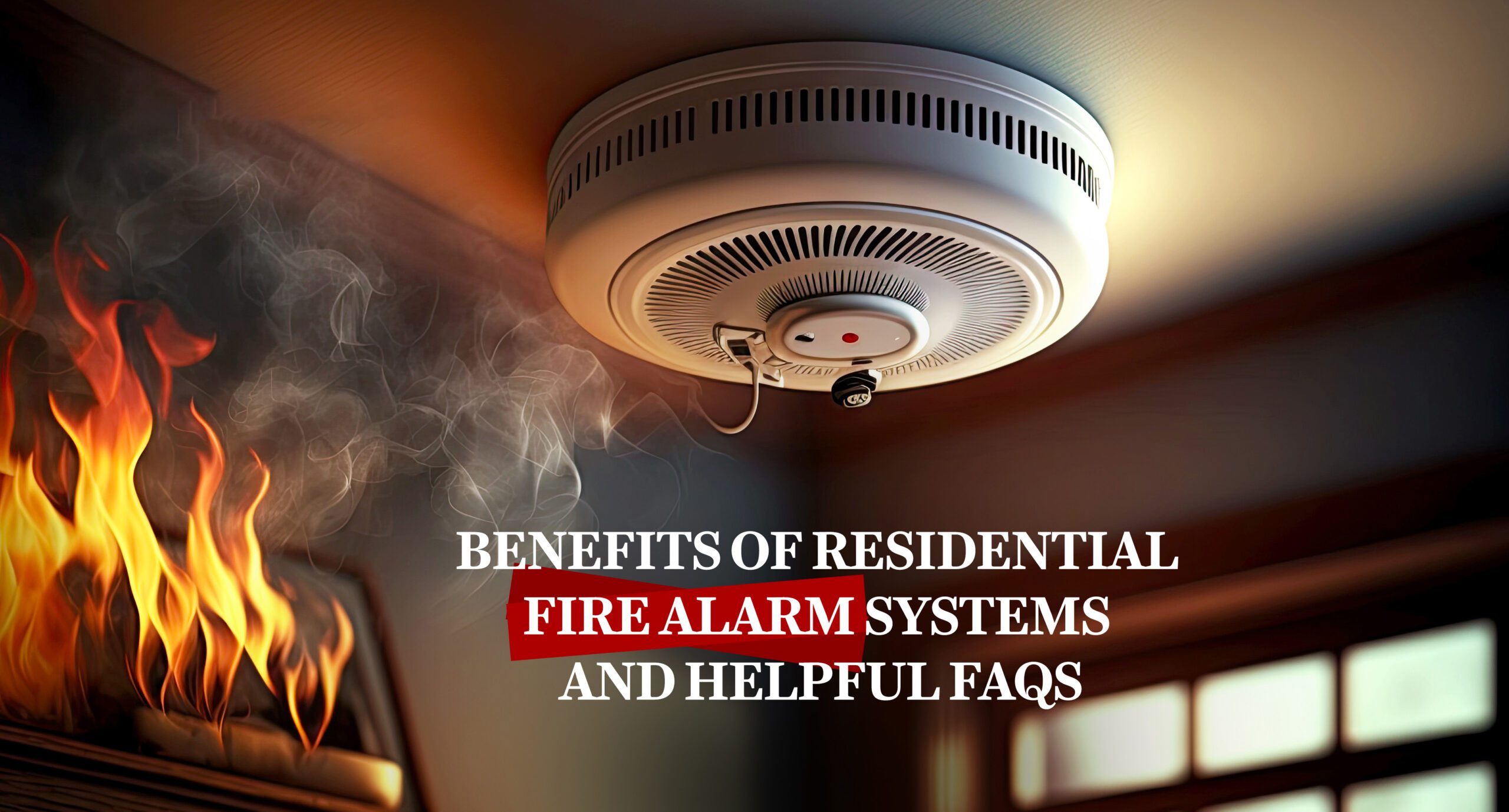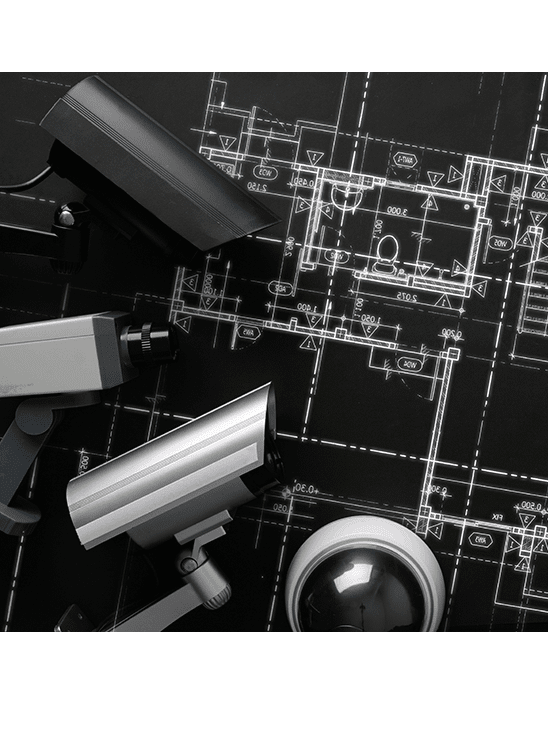
Every Home needs a residential fire alarm system because, quite simply, uncontrolled fire is dangerous. As a Homeowner, having a home fire alarm system can literally be the difference between disaster and safety. However, most renters and homeowners don’t give these life safety systems the priority they deserve because they can be confusing to understand. So today, we will discuss the general types of fire alarms available, their benefits, and frequently asked questions about them.
Our hope is that this post will help highlight the advantages of home fire alarm systems and answer common questions about them. As a reminder, Access Security Solutions LLC can help simplify your business or residential fire alarm system installations. Our team of professionals will review and provide you with a quote for your project and install the service. To get started, contact us online, by phone at +1 510 356 0083 or simply request a quote.
Here are some other related posts you might find helpful:
- Six Ways Video Intercoms can keep you Safe
- Five Causes of False Security Alarms and How to Prevent them
- Monitored vs. Unmonitored Alarm Systems: Differences and Benefits
In the following section, we will discuss some common types of fire alarm systems. We will then go on to discuss their benefits and answer some common FAQs about residential fire alarm systems.
Types of Fire Alarm Systems
Fire alarm systems play a crucial role in maintaining the safety of both commercial and residential areas. Here are some of the most general types of fire alarm systems;
- Smoke Detectors: Smoke detector fire alarm systems are among the most common types of fire alarm system. In its most basic configuration, it uses sensors to detect the presence of smoke particles in the air. Once detected, an alarm is triggered to alert residents. Smoke detectors are typically battery operated and are designed to alert occupants and, in some cases, authorities about a potential fire.
- Heat Detectors: Similar to Smoke detectors, Heat detectors also use sensors to detect the presence of heat in an area. In general, they only get activated when surrounding temperatures rise above a pre-defined level. This makes them less prone to false alarms, as with Smoke detectors. As such, Heat detectors are often used in environments where smoke detectors may not be suitable, such as in warehouses and large industrial areas.
- Combination Fire Alarm Systems: These types of systems are designed to provide both fire detection and alarm capabilities. With their combination of smoke and heat detection, they can detect either trigger simultaneously, and thus provide a more effective early warning system.
- Manual Fire Alarms: These are activated manually by an operator when smoke, heat or uncontrolled fire is detected. Manual fire alarm systems are typically used in areas where other types of fire alarm systems are not suitable, such as within some commercial and industrial environments.
Benefits of having a Fire Alarm System in your Home
Like we said earlier, having a fire alarm system at your residence is an essential requirement for true safety. Here are some practical benefits of residential fire alarm systems:
- Early warnings of fire outbursts, or gas leakages, ensuring one takes steps towards safety and fire prevention.
- Provide a sense of security and peace of mind, especially when one knows that one’s home is adequately protected.
- Fire alarm systems are reliable and easy to maintain. This means one can depend on them to detect fires and alert you, when necessary.
- Installing a fire alarm system can potentially save you money on homeowners insurance. This is because fire damage can be expensive, and insurance companies would rather help prevent them, rather than cover them.
FAQS about Residential Fire Alarm Systems
In this section, we provide answers to some frequently asked questions about residential fire alarm systems.
1. What kind of Fire Alarm solutions are available for my Home?
When it comes to fire alarms, there are several types available for home use. The most common types are smoke alarms, which detect smoke particles in the area and trigger an alarm. Some smoke alarms also come with carbon monoxide detectors. They detect the presence of the deadly gas and alert residents of the potential danger. Heat detectors are another fire alarm solution available to homeowners. They detect increases in temperature in an environment and sound an alarm when it rises above a set threshold.
2. How often should I Test my Fire Alarm?
It is important to regularly test your fire alarm system to ensure it works properly. In general, testing may be done at least once a month, or more often if you have pets or higher levels of smoke in your home. Fire alarm testing procedures usually vary depending on the type of alarm you have. We recommend that one read the fire alarm manual for instructions on how alarm testing should be performed.
3. What should I do if my Fire Alarm goes off?
First, we recommend that all residential fire alarm system alerts should be taken seriously, and never dismissed. Next, make sure everyone in your home is aware of the alarm and safe. Depending on the type of fire alarm, we strongly recommended that you first leave the area to a safe location before calling the authorities. If the alarm is due to excessive heat, shut off the heat source, if possible, and then leave the area. On the other hand, if the alarm is due to excess carbon monoxide, leave the area immediately, leaving windows and doors open. In all cases, it is important to first leave the area and then call the fire department or relevant authorities.
4. What are the signs that I need to replace my fire alarm system?
Due to their critical role in home safety, it is important to always ensure that fire alarms are working optimally. If any warning signs show up, it’s best to replace them immediately. Common signs of a malfunctioning alarm include false alarms and alarms that do not sound when, or as loud as they should. Additionally, if you have to replace batteries in a fire alarm frequently, it may mean that has a problem causing the batteries to run out quicker than normal. In all these cases, replace the fire alarm device as soon as possible.
In conclusion, false alarms can help keep your home and family safe. As such, they should be a standard security solution installed in all homes.
Our company, Access Security Solutions LLC, provides service, installation, and maintenance services for both Home and Commercial Fire Alarm Systems and other Life Safety solutions. If you are in the market for any of these security systems, we encourage you to contact us today for a customized solution for your specific needs. You may also contact us directly online, over the phone at 510-356-0083 or on Facebook, Twitter or LinkedIn today.
